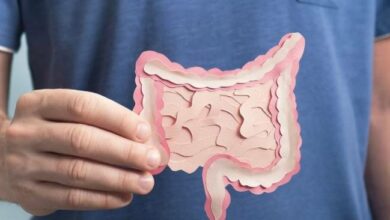Do you have a weight problem? It may cause your hair to thin.

Researchers have discovered why obesity can cause hair thinning. The study’s findings were published in the journal ‘Nature.’ They discovered that stem cells in hair follicles from mice fed a high-fat diet behaved differently than those from mice fed a standard diet.
These differences were caused by inflammatory signals in the stem cells, which eventually resulted in hair thinning and loss. These intriguing findings shed light on the complex relationship between obesity and organ dysfunction. Obesity is well known to be linked to the development of a variety of diseases in humans. Obese people are more likely to suffer from heart disease, diabetes, and other ailments. However, it is unclear how specific body organs deteriorate and lose functionality as a result of chronic obesity.
A group of researchers from Tokyo Medical and Dental University (TMDU) used mouse model experiments to investigate how a high-fat diet or genetically induced obesity can affect hair thinning and loss in a recent study. Obesity, the authors discovered, can lead to the depletion of hair follicle stem cells (HFSCs) via the induction of certain inflammatory signals, preventing hair follicle regeneration and ultimately resulting in hair follicle loss.
HFSCs normally self-renew at the end of each hair follicle cycle. This is part of the process that allows our hair to grow back indefinitely. As people age, their HFSCs fail to replenish themselves, resulting in fewer HFSCs and, as a result, hair thinning. Although overweight people are at a higher risk of androgenic alopecia, it is unclear whether obesity accelerates hair thinning and, if so, what the molecular mechanisms are.
The TMDU group set out to answer these questions and discovered some of the mechanisms. “Hair thinning is accelerated by high-fat diet feeding because it depletes HFSCs, which replenish mature cells that grow hair, especially in old mice. We compared gene expression in HFSCs between HFD-fed mice and standard diet-fed mice, and we followed the fate of those HFSCs after they were activated “Hironobu Morinaga, the study’s lead author, stated
“We discovered that when HFSCs in HFD-fed obese mice are activated, they transform into skin surface corneocytes or sebocytes that secrete sebum. These mice exhibit faster hair loss and smaller hair follicles, as well as HFSC depletion. Even after four days of HFD feeding, HFSCs exhibit increased oxidative stress and epidermal differentiation “Morinaga elaborated.






